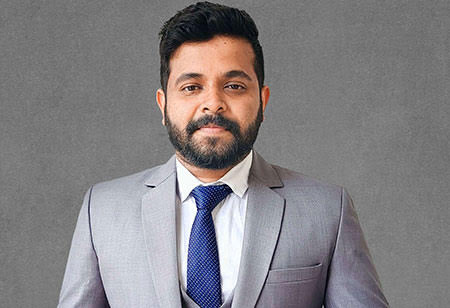
Game-Changing Technology Intervention in Healthcare Academia


Sujith Vasudevan, Managing Editor, 0
In a recent interview with CEO Insights, Dr. Om Manchanda, Managing Director, Dr Lal PathLabs, says, “There are two dimensions to how emerging technologies are transforming diagnostics. The first dimension is the service experience. Achieving faster turnaround time is a crucial aspect of improving customer experience. Hence, today, technology inter-vention is virtually in every aspect of the
diagnostic cycle- ranging from process automation in the lab to mobile app-based experience.”
On the other hand, the pharmaceutical industry has been under immense pressure ever since the first case of COVID-19 was reported. However, one of the silver linings of the pandemic was that it triggered more remarkable ways to research and develop vaccines. Eventually, the pharmaceutical industry came out all guns blazing, developing covid-19 vaccines in record time. Technological advancements have been the most significant change. The pandemic forced the imple-mentation of many technologies and innovations, which were just a part of the conversation otherwise.
However, another aspect of the healthcare industry’s future is the excellence of academia. Academia must be able to host the same level oftechnology intervention. Kasturba Medical College, Manipal, recently ignited a significant spark in this regard by inaugurating a virtual dissection laboratory. With a virtual anatomy table, students can now learn and explore the complexities of the human body without limits. This special yearly issue is shedding light on the prestigious alumni of Kasturba Medical College.
On the other hand, the pharmaceutical industry has been under immense pressure ever since the first case of COVID-19 was reported. However, one of the silver linings of the pandemic was that it triggered more remarkable ways to research and develop vaccines. Eventually, the pharmaceutical industry came out all guns blazing, developing covid-19 vaccines in record time. Technological advancements have been the most significant change. The pandemic forced the imple-mentation of many technologies and innovations, which were just a part of the conversation otherwise.
However, another aspect of the healthcare industry’s future is the excellence of academia. Academia must be able to host the same level oftechnology intervention. Kasturba Medical College, Manipal, recently ignited a significant spark in this regard by inaugurating a virtual dissection laboratory. With a virtual anatomy table, students can now learn and explore the complexities of the human body without limits. This special yearly issue is shedding light on the prestigious alumni of Kasturba Medical College.